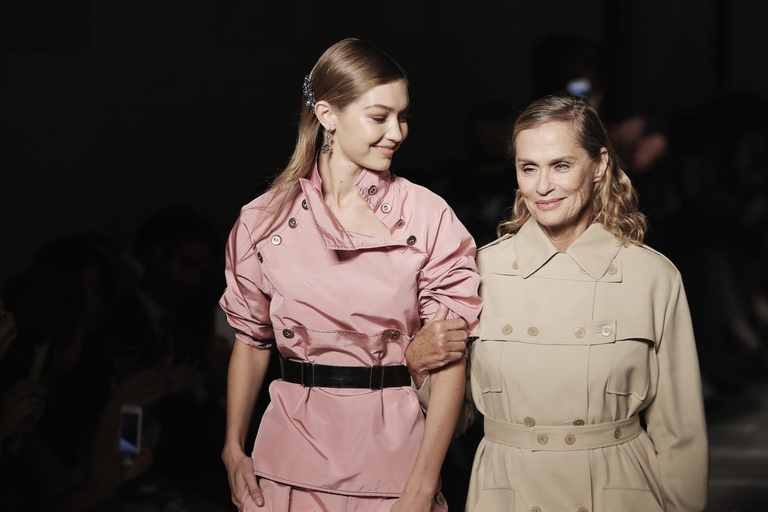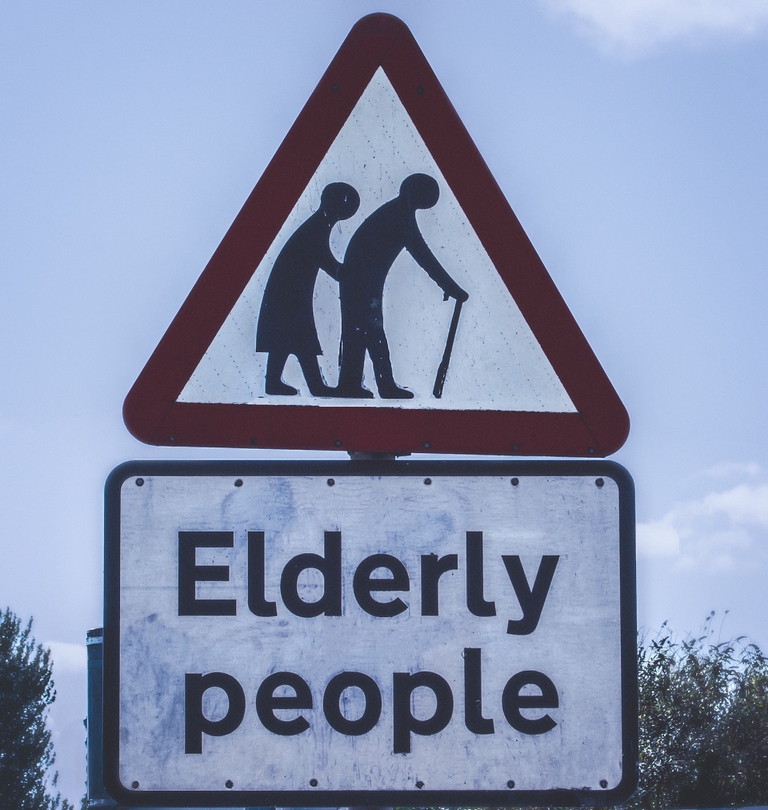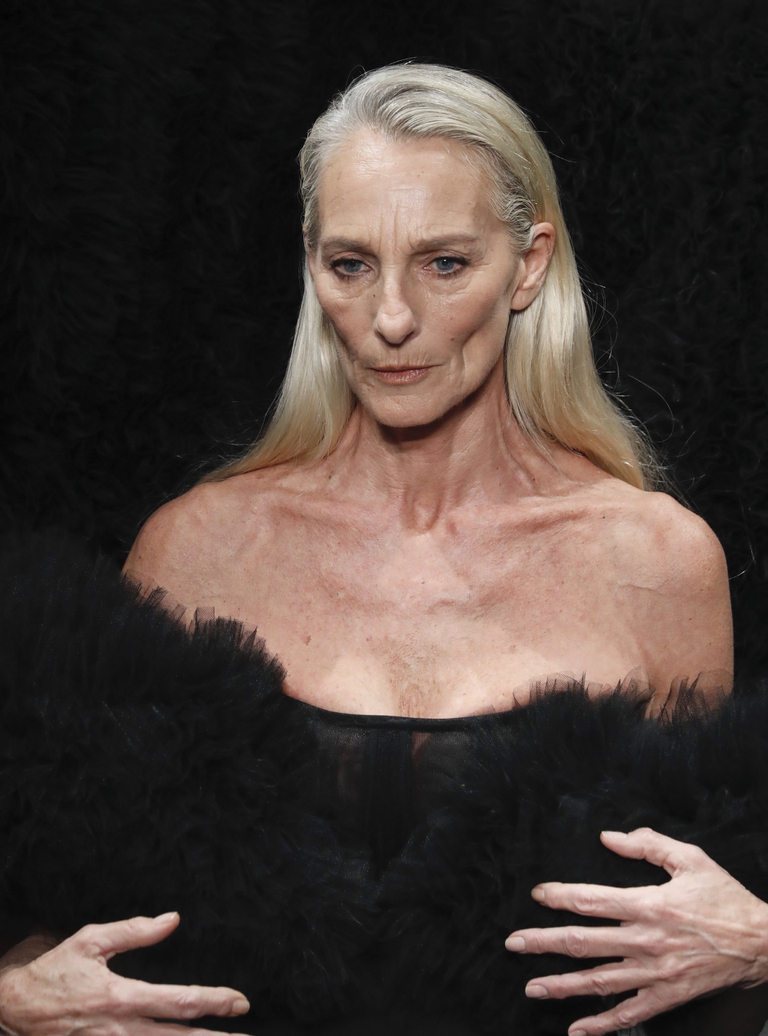https://www.lifegate.it/ageism
- |
- Ageism is a form of discrimination, like sexism or racism, only it concerns people's age:This term refers to acts of hatred perpetrated against the elderly.
- The fashion industry, being very unrepresentative of people over 50, is discriminatory in this sense, but in doing so it risks losing a large slice of the market.
- If you think that you or your loved ones will be immune to it, consider that Madonna and Rayan Gosling were also victims of ageism:the obsession with youth is deeply rooted in our society, which looks at aging as something to avoid at all costs.
Fashion, as we have said several times, is mirror of what happens at a given moment in society, reflects its progress, but also distortions and discrimination.If on the one hand it promotes change with the power to question gender roles pre-established for example, on the other hand it does not seem to be able to combat a discriminatory phenomenon such as that ofageism, ageism in Italian.
With this term, coined in 1969 by the American psychiatrist and geriatrician Robert Butler, we are referring to the whole set of stereotypes and prejudices that determine how we act towards others based on age, in particular it indicates the discriminatory behaviors towards older people.Like sexism, racism and any other type of discrimination, ageism has the end result of devaluing the people affected by it.
In certain sectors, such as fashion, for example, we are not talking exclusively about elderly people who can be identified as such, but also about men, and especially women, That are over 45, 50 years of age.Our society's obsession with youth also has practical implications on the way we orient consumption and consequently marketing strategies in the fashion and beauty sectors.

Fashion's obsession with youth is fuel for the fire of ageism
THE'ageism it does not manifest itself exclusively through negative attitudes towards older people but also in relation to aging process itself, fueled for example by advertisements that portray old age as something to be fought with any means.And if in sectors such as beauty, with its mass of anti-aging products, this is more evident, in fashion the phenomenon is no different.
A report, commissioned by the British insurance company SunLife, highlighted how adults over 50 feel affected by the lack of representation especially when it comes to advertising and glossy magazines.In editorials it is very difficult to find older women as models, as it is equally difficult on the catwalk.Beauty ideals have managed to break some taboos, such as those related to skin color or to type , but still they have failed and be inclusive of all body types, whether they are overweight or no longer young.Pay attention:even in the use of words the phrase "timeless" or the more Anglophone "ageless" are always used with anpositive meaning, as if not aging is something universally desirable, while its exact opposite is something to avoid at all costs.

If the world of fashion associates desirability always and only with thin bodies and young people, the spiral of discrimination against those bodies that do not conform to these two parameters will be increasingly marked.With the result that young people will be stimulated to do everything to continue to maintain their appearance as it is, while those of a certain age will focus their efforts on appearing younger or more youthful.
What then to say about fashion icons like Iris Apfel, Elizabeth Dessy or Benedetta Barzini?There are certainly exceptions but, as in the case of campaigns linked to body positivity, they are indeed exceptions and the reality of the facts for those, and especially for women, over 50 is very different.At this point, applause is in order Vogue Philippines, whose latest cover star is Apo Whang-Od, 106 year old tattoo artist.If you think about it, fashion's passion for youth is also one of its fundamental requirements:the entire system is in fact based on desire for the new.
The industry is very linked to our sense of time, the aesthetic information that we have compared to past eras can make them appear to us, depending on what the trend of the moment is, a lot desirable How much detestable.The succession of trends, we have already talked about the repercussions on the environment, inevitably leads those who adopt them to associate them with sensations of freshness and youth, while those who remain anchored to ways of dressing from the past are branded as old-fashioned.

A counterproductive discrimination
THE'International longevity centre (ILC-UK), data in hand, highlights how the exclusion of the elderly from the fashion imagination it could end up costing the sector approximately £11 billion over the next 20 years. According to the analysis, between 2011 and 2018 older people increased their spending on clothes and shoes 21 percent they over 50s could become the largest consumer base by 2040.The women over 75 however, while still interested in their appearance, they say they no longer spend on clothes and accessories.
Consequences of ageism
Although as a society we are obsessed with youth, the data tells us that we are a population increasingly older, especially if we take Italy and Europe as a reference.More and more people could therefore suffer from the consequences of hatred towards them, which can have a impact on health, on the longevity and on general well-being.Ageism also increases risky health behaviors, such as eating an unhealthy diet, drinking excessively or smoking, and significantly reduces the quality of life.
The Madonna affair
And if even the stars are hit by hate speech, as has happened Madonna or for Rayan Gosling, what weapons do those who are aging alone have to defend themselves and cannot boast of having influenced the imagination of generations or of having starred in films that have won Oscars?
Madonna he accused of ageism the British presenter Piers Morgan who, after the last Grammy's ceremony, published a very zoomed-in photo of the singer followed by the less than praiseworthy comment "I thought Halloween was in October" referring to her face marked both by age and by cosmetic surgery.As for Ryan Gosling (born 1980) received a lot of criticism for his role in the film “Barbie”:his detractors have protested because they believe so too old for the role of Ken.
And if it wasn't a problem for Madonna and Gosling to send hateful phrases back to the sender, since 2016 there has been an association whose mission is to carry out a campaign with the aim of changing the narrative regarding age.Through sharing articles, inspirations and products Ageism is never in style is concerned with promoting and encouraging age-based inclusivity primarily in the fashion sector.
Fighting age-related stereotypes is important to make all people feel accepted, regardless of the year of birth marked on their documents and regardless of how their physical appearance.Let's think of all the stars who have been x-rayed in the media with related speculation as to whether or not they may have had cosmetic adjustments: fight this culture is the heart of the activities of Ageism is never in style, which also has an e-commerce from which it finances with the 20 percent of the proceeds Wellbeing of women, an association dedicated to female health, from childbirth to menopause.
